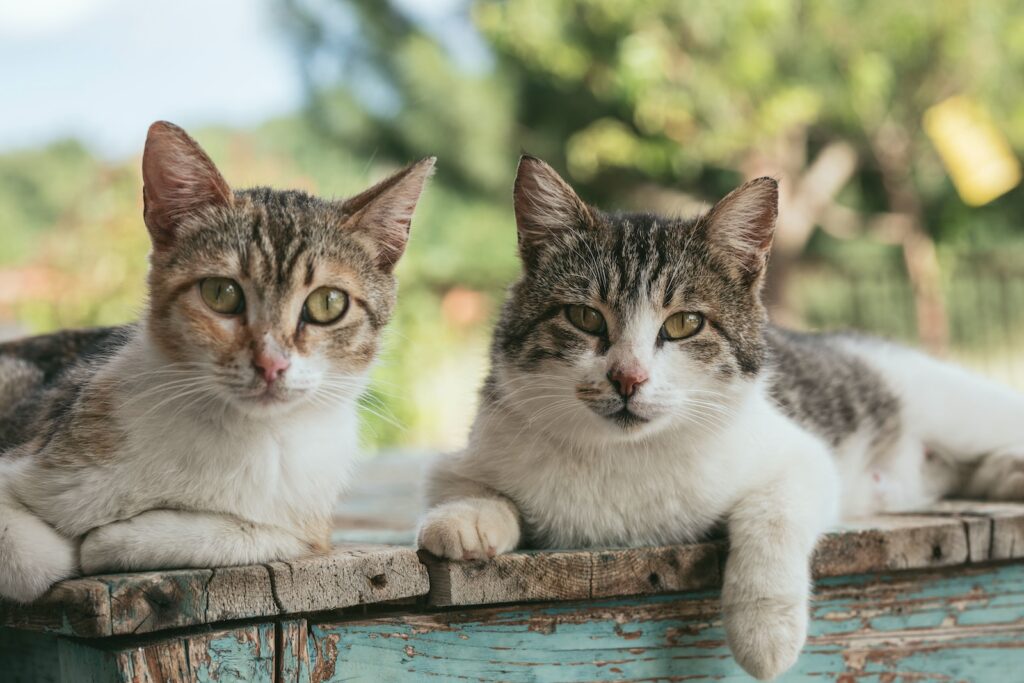Can Cats Eat Ham? — Yes, They Can
Ham is a popular food among humans, and many cat owners wonder if their feline friends can enjoy this tasty treat as well. The answer is yes, cats can eat ham, but it should only be given to them in moderation and with certain precautions.
Can Kittens Eat Ham?
While adult cats can tolerate ham in small amounts, it is not recommended for kittens. Their developing digestive systems may struggle with processing the high levels of salt and fat typically found in ham. It’s best to stick to a balanced kitten diet to ensure their optimal growth and health.
Things to consider when feeding ham to kittens?
If you still want to give your kittens a taste of ham, it’s important to consider a few things. First, ensure that the ham is cooked thoroughly to eliminate any potential bacteria or parasites. Secondly, remove any bones, as they can pose a choking hazard to kittens. Lastly, offer only a tiny amount and monitor their reaction closely. If any digestive issues or adverse reactions occur, refrain from giving them ham in the future.
Nutritional Benefits of Ham for Cats — Why Ham is Good for Cats?
1. High-Quality Protein
Ham is rich in protein, which is an essential nutrient for cats. Protein helps support muscle growth, tissue repair, and overall well-being. However, cats should primarily rely on animal-based protein sources, such as high-quality cat food, to meet their protein needs.
2. Vitamins and Minerals
Ham contains various vitamins and minerals that can be beneficial to cats. It is a good source of thiamine, niacin, phosphorus, and zinc. However, the levels of these nutrients may not be as significant compared to a balanced cat diet.
3. Palatability and Variety
Cats are known for their finicky taste buds, and offering them a small amount of ham as an occasional treat can add variety to their diet. It can be an enjoyable experience for both you and your furry friend.
Potential Allergies: Can Cats Be Allergic to Ham?
While allergies to ham in cats are rare, they are not entirely impossible. Some cats may be sensitive to certain ingredients in ham, such as preservatives or seasonings. It’s essential to observe your cat closely after introducing ham into their diet and look for any signs of allergic reactions.
Symptoms of Ham Allergies in Cats
- Vomiting and Diarrhea: If your cat experiences gastrointestinal distress, it could be a sign of an allergic reaction to ham.
- Skin Irritation or Itching: Allergies may manifest as scratching, redness, or rashes on your cat’s skin.
- Respiratory Issues: Some cats may exhibit sneezing, coughing, or difficulty breathing when allergic to ham.
What to Do If Your Cat Shows Symptoms?
- Consult a Veterinarian: If you suspect that your cat is experiencing an allergic reaction to ham, seek professional advice. Your veterinarian will be able to guide you on the best course of action.
- Eliminate Ham from Diet: If the allergic reaction is confirmed, eliminate ham from your cat’s diet completely to avoid further complications.
- Consider Allergy Testing: In severe cases, your veterinarian may recommend allergy testing to identify the specific allergen causing the reaction.
Recommended Amount: How Much Ham Can a Cat Consume?
While cats can eat ham, it should only be given to them as an occasional treat and in small quantities. Ham is high in salt and fat, which can be harmful to cats in excessive amounts. Ideally, ham should make up no more than 10% of their overall diet.
Things to Consider When Feeding Ham to Cats
When offering ham to your feline friend, it’s crucial to choose a lean option with minimal seasoning or additives. Avoid giving them large portions or feeding ham as a substitute for their regular diet. Remember, a balanced and species-appropriate cat food is the key to meeting their nutritional needs.
How to Feed Ham to Cats: A Quick Guide
If you decide to treat your cat to some ham, here is a quick guide to ensure their safety and happiness.
Simple Ham Treat:
1. Choose plain, cooked ham without any added seasonings or sauces.
2. Cut a small, bite-sized piece of ham.
3. Offer it to your cat as an occasional treat, paying attention to their reaction and portion size.
Conclusion
While cats can eat ham, it should only be given to them in moderation and with caution. It can serve as a tasty treat and a source of additional protein for cats, but it should not replace their regular balanced diet. Always be mindful of potential allergies and feeding ham in appropriate quantities to ensure your cat’s health and well-being.






